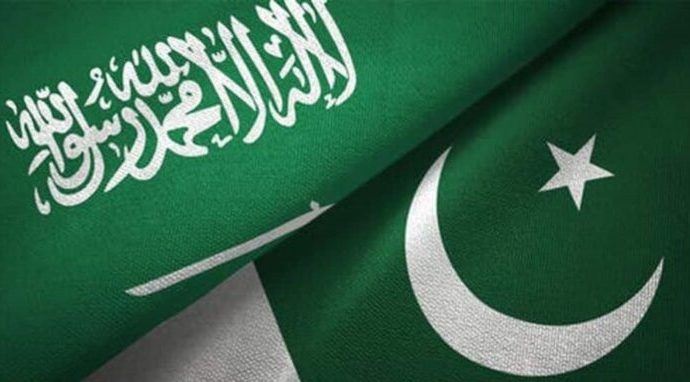ISLAMABAD by IMTISAL BUKHARI
A recently signed defense agreement between Pakistan and Saudi Arabia has been described as a milestone in bilateral cooperation, with far-reaching implications for regional peace, mutual security, and geopolitical balance in South Asia and the Middle East.
Amid heightened regional instability, particularly following a terrorist attack in Indian-occupied Jammu and Kashmir, India hastily accused Pakistan and launched limited military aggression in May. However, the brief confrontation ended unfavorably for India, according to defense analysts, especially after U.S. President Donald Trump held a high-profile meeting with Pakistan’s Field Marshal Syed Asim Munir at the White House—an encounter that stirred discontent in New Delhi.
India also expressed strong displeasure over President Trump’s claim that the United States played a key role in mediating the conflict and preventing further escalation. In this backdrop, the Pakistan-Saudi Arabia defense pact is being seen as a natural evolution of an already strong and historic relationship.
A Deepening Strategic Partnership
The two countries share religious, ideological, and geopolitical ties, with their strategic partnership dating back to the late 1970s. Notably, during the Soviet invasion of Afghanistan, both nations stood united in supporting the Afghan resistance, recognizing the threat posed by Soviet presence to regional stability.
Saudi Arabia has consistently supported Pakistan in times of economic crisis, and continues to extend financial aid to Islamabad. Experts suggest that the current defense pact reflects not only the trust between the two nations but also their shared vision for regional stability and Islamic solidarity.
Middle East Dynamics Accelerate the Agreement
According to foreign policy columnist Sumit Ganguly and analysts at Stanford University’s Hoover Institution, long-standing defense discussions between the two nations accelerated in the wake of escalating tensions in the Middle East. A key trigger was the Israeli attack on Qatar on September 9, which prompted a more unified response from pro-Palestine nations, including Pakistan and Saudi Arabia.
Both countries have reaffirmed their support for the Palestinian cause, adding a broader ideological dimension to the military pact.
A Nuclear Security Umbrella
While the specifics of the defense agreement remain confidential, Pakistan’s nuclear status and Saudi Arabia’s long-standing interest in security guarantees suggest a deeper level of military coordination. During the 1980s, Riyadh reportedly provided financial support to Pakistan’s nuclear program, a history that continues to shape mutual trust.
The new defense pact could potentially position Pakistan as a security guarantor for Saudi Arabia, especially amid the threat of expanding regional conflicts.
Impact on South Asian Geopolitics
Analysts believe the pact has significant implications for South Asia, especially as it comes in the wake of Pakistan’s successful military response to Indian aggression in May. During the confrontation, Pakistan reportedly utilized Chinese-made weapons, reaffirming its strategic defense ties with Beijing.
Now, with improving ties with the U.S., a robust alliance with China, and a formal defense agreement with Saudi Arabia, Pakistan appears to be reasserting its role as a key regional power, unsettling its eastern neighbor India.
Experts suggest that China may increase military supplies and investments in Pakistan to ensure its influence remains intact, despite the expanding defense matrix involving Islamic countries.
A Strategic Victory for Pakistan’s Military Leadership
Observers have called the Pakistan-Saudi defense agreement a direct result of Pakistan’s strong military leadership under Field Marshal Syed Asim Munir, whose handling of the May crisis has reportedly elevated Pakistan’s stature on the international stage.
In summary, the Pakistan-Saudi Arabia defense pact marks a significant shift in regional alliances, underlining Pakistan’s emerging role as a central player in both Islamic security frameworks and global power dynamics. The agreement is expected to bring strategic stability, deterrence capability, and greater regional cooperation amid growing uncertainty and shifting alliances.


